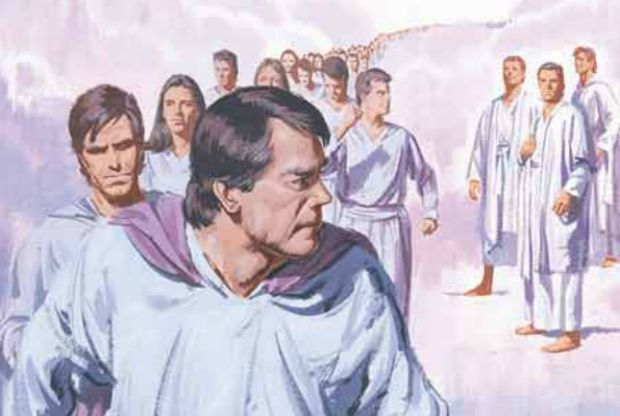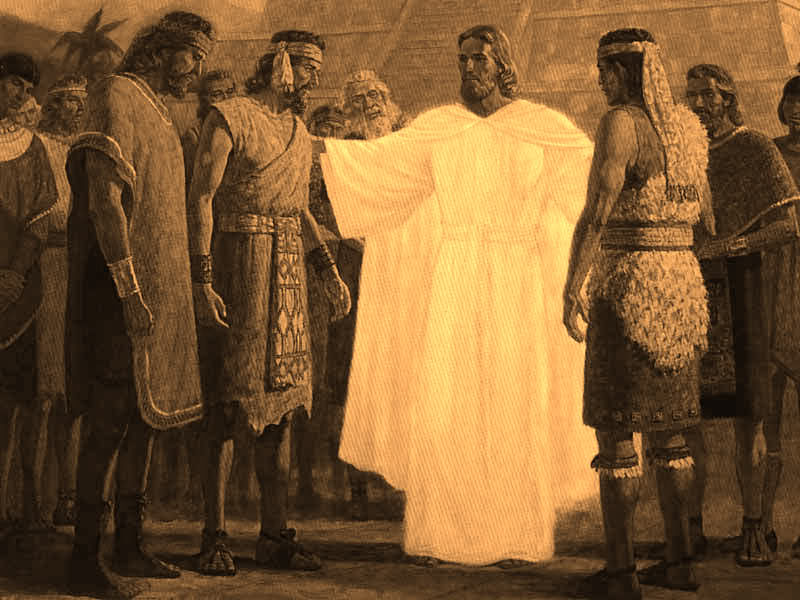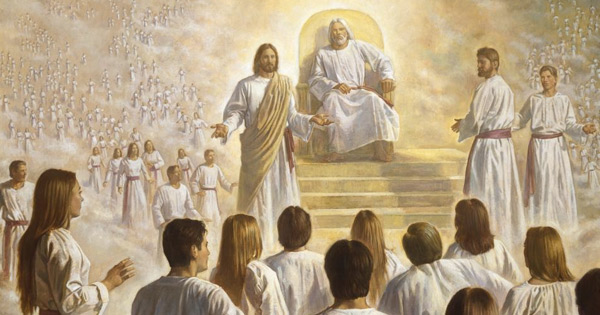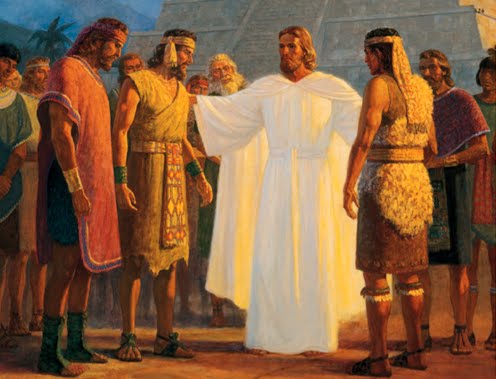Question
Gramps,
I have a question with respect to Nephi and the “great and abominable church.” Does that term refer to the Catholic Church?
Donna
Answer
Dear Donna,
Let’s look carefully at the scriptures. It’s important that we accept what they say and not attempt to put our private interpretations on them. We read in 1 Nephi 14:1 that there are save two churches only. If someone would name the Catholic Church as the great and abominable, what about all the others? Are they therefore not churches? Nonsense! When the Lord says that there are two churches only, he is not speaking of the man made religious organizations, as they comprise many churches. All of these churches do much good. They may not have the authority or the necessary doctrine to assure either salvation or exaltation in the celestial kingdom for their practitioners, but through adherence to their beliefs and through the goodness of their lives they are assured by the Lord to inherit kingdoms of glory. Hugh Nibley has offered this insight–
“Now we have ‘that great pit, which hath been digged for them by that great and abominable church.’ You notice that the great and abominable church is not capitalized. It’s not one particular institution. I think that may be significant that the brethren left it that way” (Hugh Nibley, Teachings of the Book of Mormon, Semester 1, p.202).
In the reference scripture, the Lord is not speaking of the organized churches as we know them. One church is the Church of the Lamb of God and the other is the church of the devil. We might begin by asking, What is the Church of the Lamb of God? In verse 12 we read that the church of the Lamb, who were the saints of God. So the Church of the Lamb is composed of the saints of God. Next, we ask, Who are the saints of God? Again, the answer is given in this same chapter. Verse 14 says,
And it came to pass that I, Nephi, beheld the power of the Lamb of God, that it descended upon the saints of the church of the Lamb, and upon the covenant people of the Lord.
The word “and” here does not mean “and also,” it means “and in other words.” This is a synonymous parallelism, with which the scriptures are replete, meaning that the saints of the church of the Lamb are the covenant people of the Lord.
Who then are the covenant people of the Lord? The covenant people are those who in the holy temples make sacred covenants of obedience to the gospel and who live by their covenants. Not every member of the Church of Jesus Christ of Latter-day Saints has made and keeps the covenants of the holy temple. So I hope that I will not be misunderstood if I say that the Church of Jesus Christ of Latter-day Saints is not the Church of the Lamb. However, let us quickly add that it is the guardian of the covenants of the Church of the Lamb. It may be that not all the members of the Church of Jesus Christ of Latter-day Saints are of the Church of the Lamb, but all of the members of the Church of the Lamb are indeed faithful members of the Church of Jesus Christ of Latter-day Saints.
The scripture tell us that whoso belongeth not to the church of the Lamb of God belongeth to that great church, which is the mother of abominations . . This statement helps define the two churches. It is apparent that they go far beyond the man made organizations of today. All those in all the ages of the world who have made and keep the sacred covenants of salvation, who have their garments washed clean in the blood of the Lamb, who have been sanctified from sin, are the Church of the Lamb of God. All others are influenced to one degree or another by the Adversary of all righteousness. Elder B.H. Roberts settled your question for us in his Defense of the Faith and the Saints, Vol. 1, p.31.
“I would not like; therefore, to designate the Catholic church as the church of the devil. Neither would I like to designate any one or all of the various divisions and subdivisions of Protestant Christendom combined as such church; nor the Greek Catholic church; nor the Buddhist sects; nor the followers of Confucius; nor the followers of Mohammed; nor would I like to designate even the societies formed by deists and atheists as constituting the church of the devil. The Book of Mormon text ought to be read in connection with its context.”







